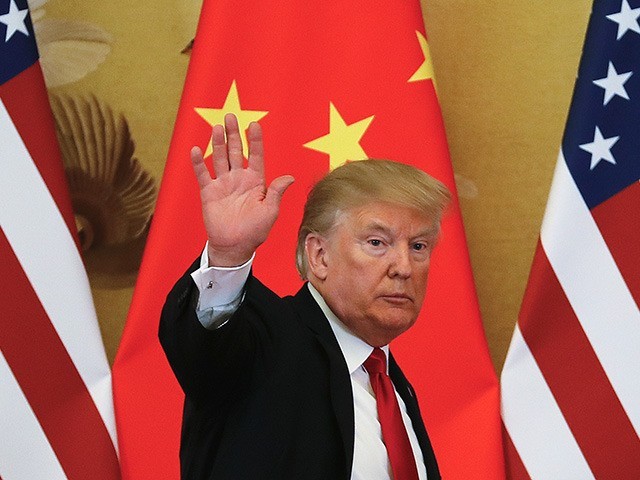U.S. President Donald Trump has been tougher on China than his predecessors, a survivor of the 1989 Tiananmen Square massacre in Beijing at the hands of Chinese communist troops declared on Wednesday, on the eve of the heinous crackdown’s anniversary.
Thursday marked the 31st anniversary of the incident in Beijing’s Tiananmen Square, where communist troops thwarted student-led protests in a bloody crackdown on June 4 and 5, 1989. Protesters were calling for democracy, free speech, and a free press, among other things. Estimates place the number of casualties in the thousands, although there is no official count as the Chinese Communist Party (CCP) has endeavored to keep precise information about it a secret, banning any discussion of the events.
“This new administration has done much better than previous ones in confronting China,” Fengsuo Zhou, a survivor of the massacre and founder of Humanitarian China, said during a Tiananmen Square remembrance event online on Wednesday, hosted by Students for a Free Tibet.
The Trump administration has ushered in “a new era of confronting CCP [Chinese Communist Party] instead of appeasing [and] embracing CCP like in the past,” he added.
Nevertheless, he noted, “that’s not enough,” arguing that the United States should have confronted China directly over its decision to stip Hong Kong of its autonomy, a move that has triggered protests and a crackdown by Beijing.
Soon after news surfaced late last month that China was planning to strip Hong Kong of its autonomy, the Trump administration lambasted the move, threatening to remove Hong Kong’s special trading privileges on May 22 if China moved forward with its decision.
On May 28, China approved a “national security” law to erase what remains of Hong Kong’s autonomy, which has allowed residents to enjoy quasi-democratic freedoms until the present day. The “national security” law allows China to intervene and use police action against anyone present in Hong Kong if they are accused of engaging in “secession,” undermining the power of the state, and anything that Beijing sees as a threat to the Communist Party.
Under Hong Kong’s “One Country, Two Systems,” the Communist Party is not legally allowed to govern Hong Kong, only claim sovereignty over it.
Trump’s response to the Hong Kong situation came “too late,” Zhou argued.
On May 29, President Trump accused his predecessors of allowing China to get away with misconduct, namely human rights violations, espionage, and ripping off America financially, among other things. He also lambasted Beijing for allowing the novel coronavirus to spread by mismanaging its response to the lethal and highly contagious disease and covering up the extent of the outbreak during its early stages, with the help of the China-influenced World Health Organization (W.H.O.), a United Nations entity.
China, the birthplace of the coronavirus, and the W.H.O. have denied any wrongdoing.
On May 29, Trump announced he was severing ties with the W.H.O., ending U.S. taxpayer-funded aid to the U.N. agency for not doing enough to stop the spread of the virus. The United States is the agency’s top source of funding.
Under the Trump administration, the United States has imposed a range of sanctions and tariffs against Beijing. It has also taken other measures like suspending the entry of foreign nationals from China identified as potential security risks to safeguard vital university research amid the pandemic. The Trump administration has also taken action to prevent China from stealing research for vaccines and treatments to combat COVID-19, the disease caused by the coronavirus.
President Trump himself and his administration have also condemned China’s imprisonment of more than one million Muslim Uyghur people in concentration camps. In recent days, the president said he is “very strongly” considering signing a bill approved by Congress to sanction communist party officials in China who oversee the Uyghur policy.
Last year, the Trump administration sanctioned Chinese entities involved in human rights atrocities against Uyghur Muslims.
Under President Trump, the Pentagon has also acknowledged the threat posed by the great-power competition between the United States and China, deeming the Asian giant one of the top rivals facing America.
Instead of primarily focusing on the war on terror, Trump’s Pentagon has set its eyes on deterring “strategic competitors” — China and Russia — as both continue to modernize their militaries.
U.S.-China tensions have intensified under the Trump administration, raising concerns of potential military confrontations in the South China Sea. Beijing has seized territory claimed by other nations in the region, including its American allies.

COMMENTS
Please let us know if you're having issues with commenting.